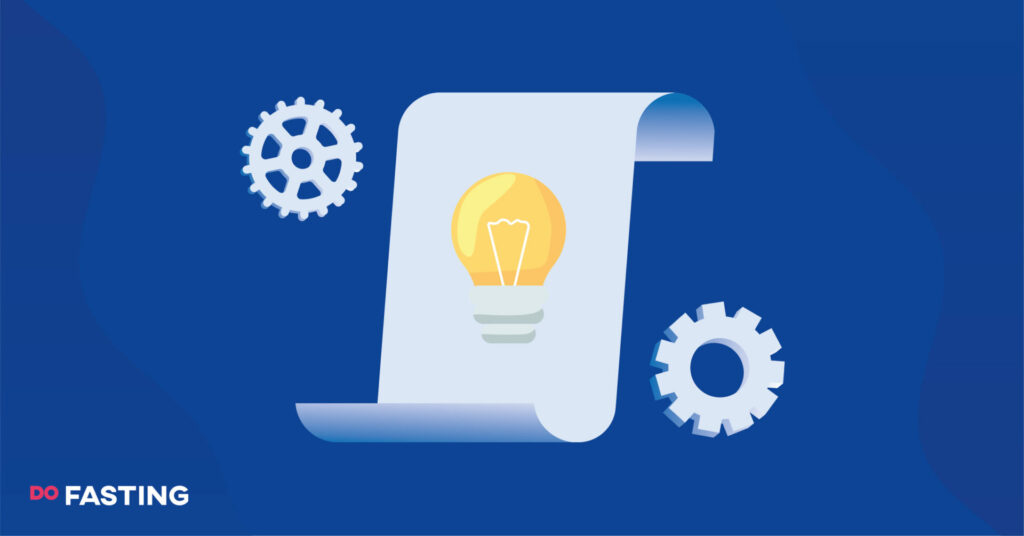Contents
Do Fish Oil Supplements Break a Fast?
Breaking a fast means you’ll consume calories to end the fasting window. People usually have small meals to ease their stomach back into a normal eating schedule. The best food to break a fast should be low in carbs and very easy to digest.
Omega-3 fatty acids are very important for your diet, as they can improve insulin sensitivity and reduce the risk of type 2 diabetes. This is great for people who want to manage their insulin levels, especially during intermittent fasting.
Below, you’ll find some nutritional facts about fish oil supplements:
- 30% of fish is made up of omega-3’s
- The other 70% is healthy fats
- It doesn’t have carbs, sugar, fiber, or protein
- It contains some vitamin D and A
- The capsules may be 10 calories or less
Now, does fish oil break a fast? These capsules do not break a fast due to the minimal number of calories. There are also no digestible carbs that could trigger insulin release. The pure fats in the oil may give you an energy boost, making you feel less tired.
You can take around 1–2 grams of fish oil to avoid breaking a fast. This might be around 20 calories per day, depending on which supplements you get. However, spreading the dosage out is a good idea, as you can take one capsule in your next eating window.
Take a
1-minute quiz
and discover how much weight you can lose with DoFasting!

What Are Omega-3 Fatty Acids, and Why Should You Supplement Them?
Omega-3 fatty acids are polyunsaturated acids that have many health benefits. The three main bonds comprise alpha-linolenic acid (ALA), eicosapentaenoic acid (EPA), and docosahexaenoic acid (DHA), which are essential for building human cells.
People need omega-3’s to keep every organ functioning properly. These acids support your heart, lungs, immune system, and gut health. Not getting enough of this nutrient could lead to high blood pressure, joint pain, dry skin, and even depression-like symptoms.
Fish oil supplements can help speed up the fat-burning process during fasting. They may strengthen your metabolism when taken consistently. A fast metabolism means the body burns extra calories throughout the day, leading to further weight loss.
These supplements might also reduce your fasting hunger pangs. Eating fewer calories and junk food can help you lose weight. Studies found that supplementing fish oil every day while fasting may promote satiety up to two hours after a healthy meal.
There’s no set recommendation on how much fish oil you should have in one day. However, when it comes to omega-3 intake (EPA and DHA), the recommendation is 250–500mg a day. It means you could take around 1000mg of fish oil daily, which will provide you with 300mg of combined EPA and DHA.
Just remember that going overboard with these supplements could potentially break your fast. Each fish oil supplement contains a small number of calories, so be aware of that. You could simply have two capsules during the fast and two with big meals.
5 Scientifically Proven Benefits of Fish Oil
Many amazing benefits derive from taking fish oil capsules. Omega-3’s should be in everyone’s diet, regardless of their fitness goals or eating schedule.
Here are 5 health benefits of fish oil for intermittent fasting:
1. Improve heart disease risk factors
People taking more fish oil have a lower risk of heart disease. This is because omega-3’s reduce LDL (bad) cholesterol and high blood pressure. Smooth blood flow in your system means the heart can pump blood effectively without stress.
2. Reduce symptoms of metabolic syndrome
Fish oil supplementation reduces symptoms that weaken your heart. Lower blood pressure, triglyceride levels, stomach fat, and blood sugar could prevent metabolic syndrome, meaning omega-3 can also minimize the risk of diabetes.
3. Fight inflammation
Certain fish oils decrease inflammatory cytokines – molecules that affect your immune cells. Reduced swelling in the body may prevent rheumatoid arthritis and other chronic diseases that cause lots of joint pain, stiffness, and recurring infections.
4. Improve eye health
Your eyes need omega-3’s to function, so taking fish oil can lower the risk of age-related macular degeneration (AMD). This happens when your eyes decline due to aging factors. Fish oil might keep your eyes in top shape to prevent any serious diseases.
5. Prevent and treat depression and anxiety
Fish oil can reduce depressive symptoms. This is because omega-3’s travel through brain cell membranes and relieve inflammation associated with mood signaling molecules. You may experience more motivation after supplementing these for a while.
Take a
1-minute quiz
and discover how much weight you can lose with DoFasting!

Possible Side Effects of Omega-3 Supplements
Taking fish oil could come with certain side effects. Some intermittent fasting types might enhance these symptoms, depending on your dietary routine.
Below, you’ll find some common side effects of these supplements:
- Loose stools: Certain fatty acids may cause diarrhea in those with a sensitive stomach. This means you’ll experience loose stools when going to the toilet.
- Acid reflux: The high fat content in fish oil may cause indigestion. Some people experience heartburn, belching, dysphagia, and stomach discomfort.
- Stomach upset: Taking supplements on an empty stomach could give you some discomfort. It might be better to take fish oil with big meals on your diet.
- Nausea: Fish oil may disrupt your digestive tract and make you feel sick. If you feel nauseous, stop taking the capsules and drink lots of water during the fast.
You can avoid these side effects by taking the supplements with plain water or consuming them with meals. An empty stomach might cause you some digestive issues, so always follow the recommended dosage when intermittent fasting.
5 Best Omega-3 Food Sources
There are some great omega-3 food sources you can eat outside of the fast. You need plenty of this important nutrient to stay healthy and lose some of that stubborn weight. Of course, only eat these during the eating window, so you don’t break a fast.
It will not always be easy to include those foods in your diet. However, if you ever need help or inspiration, open the DoFasting app and explore the extensive recipe database. Here you’ll find thousands of dishes that are not only rich in nutrients and easy to prepare but will also tickle your taste buds.
Now, let’s take a look at the 5 best foods to eat after you break a fast:
1. Mackerel
There is around 4,580mg of omega-3 per 100 grams of mackerel. Since the minimum is 250–500 mg daily, this is plenty to fuel your body. This fish also contains vitamins B2, D, B12, B6, and B3, making it perfect for a balanced fasting diet.
Mackerel is known to reduce blood pressure and LDL cholesterol levels. Pairing it with your intermittent fasting regime should help to regulate blood pressure naturally.
2. Salmon
Salmon has 2,150mg of omega-3 per 100-gram serving. This food is popular as a high-fat meal since it contains lots of fat-soluble nutrients. Other minerals might be potassium, magnesium, and vitamin C, which are great for your heart health.
Eating lots of salmon can reduce the risk of cardiovascular disease, dementia, and depression. You should also have this fish when supporting weight loss efforts.
3. Walnuts
Walnuts have 2,570mg of omega-3 per 28 grams. Of course, this food might not have strong flavors, but it’s very good for your health. It also retains valuable plant compounds, copper, manganese, and vitamin E for strengthening the immune system.
Consuming some walnuts every day might improve brain function due to the phenol antioxidants. These compounds protect your cells against harmful toxins and radicals.
4. Soybeans
This food has 1,440mg of omega-3 per 100-gram portion. You’ll also find vitamin K, folate, magnesium, and riboflavin in just one serving.
Soybeans have a significant amount of fiber, meaning they can prevent constipation and stomach pain from intermittent fasting methods. Fiber is also great for regulating the insulin response and helping the body to break down its own fat stores.
5. Sardines
Sardines have 982mg of omega-3 per 100 grams. This might not be a lot compared to the others, but sardines are 90% selenium, which is a very important mineral.
Selenium improves both brain and cognitive function. Not getting enough could cause depression, anxiety, confusion, and bad gut health, so always increase your selenium intake.
Take a
1-minute quiz
and discover how much weight you can lose with DoFasting!

Conclusion
So, does taking fish oil break a fast?
No, this supplement does not break a fast, especially if you stick to two doses. This pure oil can’t disturb your gut rest or contribute to insulin resistance. The minimal calories, carbohydrates, sugars, and protein won’t ruin any of your fasting periods.
Consult with your doctor before trying new fish oil capsules. A medical professional can tell you more about gut health and whether pure fats contribute to weight loss. Apple cider vinegar (ACV) may be a good alternative to these oil supplements.
See how DoFasting will improve your life
Find out what works for you with this 60-sec quiz approved by our experts and get your personal revolutionary fasting assistant.
Start the Quiz















